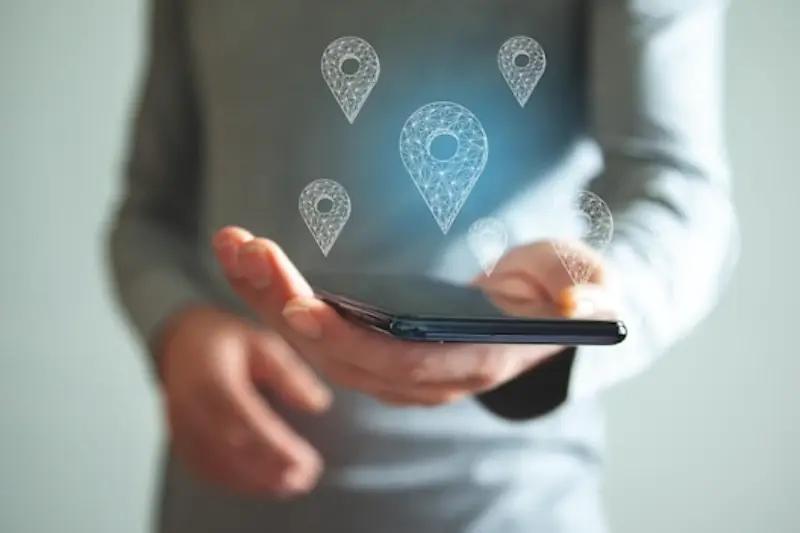What Is GDPR and How Does It Relate to My App?
Every single day, mobile apps collect millions of pieces of personal data from users around the world—everything from location tracking to shopping habits to private messages. Most people have no idea just how much information they're sharing when they tap "allow" on those permission requests. And that's exactly why privacy laws exist.
The thing is, these regulations aren't just suggestions. They're legally binding rules that can hit app developers with eye-watering fines if they get things wrong. We're talking penalties that can reach hundreds of millions of pounds for the biggest violations. GDPR alone has already cost companies over £1 billion in fines since it came into effect.
Privacy is not about hiding something. It's about being able to control what you share and with whom you share it.
Here's what makes this tricky for mobile app developers: every country seems to have its own set of privacy rules, and they're all slightly different. What works in Europe might not fly in California, and what's acceptable in California could land you in hot water in Brazil. It's like trying to follow multiple rulebooks at once—except the consequences for getting it wrong are very real. That's why understanding these laws isn't just good practice; it's absolutely necessary for anyone building mobile apps today.
What Are Privacy Laws and Why Do They Matter for Apps
Privacy laws are rules that governments create to protect people's personal information—things like your name, email address, phone number, and where you live. They tell companies what they can and can't do with this information when they collect it from users.
For mobile apps, these laws are becoming increasingly important because apps collect loads of personal data. Every time someone downloads your app, creates an account, or uses certain features, you're probably gathering information about them. Some apps track location data, others store photos or messages, and many collect information about how people use the app.
Why App Developers Need to Care
If you're building an app and you ignore privacy laws, you could face some serious problems. We're talking about massive fines that could put you out of business, legal action from users, and damage to your reputation that's hard to repair. Plus, app stores like Google Play and Apple's App Store have their own privacy requirements—break those and your app could get removed entirely.
But it's not just about avoiding trouble. Following privacy laws properly can actually help build trust with your users, which means they're more likely to use your app and recommend it to others. People want to know their information is safe.
Understanding GDPR: The Big One from Europe
Right, let's talk about GDPR—the General Data Protection Regulation. This is the privacy law that made everyone panic back when it launched, and honestly, it's still causing headaches for app developers today. GDPR applies to any business that processes personal data of EU residents, which means if your app can be downloaded in Europe, you need to care about this one.
The regulation is quite strict about what counts as personal data—basically anything that can identify someone. Names, email addresses, location data, device IDs, even IP addresses all count. For mobile apps, this covers pretty much everything you might collect from users.
Key GDPR Requirements for Mobile Apps
- Get clear consent before collecting any personal data
- Explain what data you're collecting and why in plain English
- Give users the right to access their data
- Allow users to delete their data when requested
- Report any data breaches within 72 hours
- Appoint a Data Protection Officer if you process lots of data
The fines for getting this wrong are no joke—up to 4% of your annual revenue or €20 million, whichever is higher. I've seen companies spend months retrofitting their apps to comply, so it's much better to build with GDPR in mind from the start.
Always assume your app will have European users, even if you're not targeting them directly. It's easier to build GDPR compliance in from day one than to add it later.
CCPA and American Privacy Rules
The Americans took a slightly different approach to privacy compared to Europe. The California Consumer Privacy Act—or CCPA as everyone calls it—came into effect in 2020 and it's basically America's answer to GDPR. Well, California's answer anyway; the rest of the US is still catching up.
Now here's the thing about CCPA—it only applies to businesses that meet certain criteria. You need to either make over $25 million in annual revenue, handle data from 50,000+ consumers, or get more than half your revenue from selling personal information. So if you're a small app developer just starting out, you might not need to worry about it yet. But don't get too comfortable!
What CCPA Actually Does
CCPA gives California residents four main rights: the right to know what personal information is being collected, the right to delete that information, the right to opt-out of having their data sold, and the right not to be discriminated against for exercising these rights. It's not as comprehensive as GDPR, but it's a solid start.
Other states are following California's lead too. Virginia, Colorado, and Connecticut have all passed similar laws, and more are coming. The pattern is clear—America is moving towards stronger privacy protection, state by state.
Other Important Privacy Laws Around the World
GDPR and CCPA might get all the attention, but they're not the only privacy laws making waves in the app development world. Countries across the globe are waking up to the fact that their citizens' data needs protecting—and they're doing something about it.
Brazil introduced LGPD (Lei Geral de Proteção de Dados) which is remarkably similar to GDPR in many ways. Then there's Canada's PIPEDA, which has been around for ages but is getting stricter. Australia's Privacy Act keeps evolving, and India's Personal Data Protection Bill is set to shake things up for the world's largest democracy.
The Domino Effect
What's interesting is how these laws are all starting to look quite similar. Most require explicit consent for data collection, give users the right to access their data, and demand that companies explain what they're doing with personal information in plain English.
The trend is clear: privacy is no longer optional, it's becoming a fundamental right that governments worldwide are determined to protect
For app developers, this means you can't just focus on one or two big markets anymore. If your app reaches users globally, you need to understand how different privacy laws might affect your data handling practices—or risk facing fines and legal troubles down the line.
How Privacy Laws Affect Mobile App Development
After years of building apps, I can tell you that privacy laws have completely changed how we approach development. What used to be a simple process of coding features and pushing them live has become much more complex—and frankly, much more expensive too.
The biggest impact is on data collection. Apps can no longer just hoover up user information without asking permission first. Every piece of data you want to collect needs a clear purpose, and users must actively agree to it. This means redesigning user flows, creating consent screens, and building systems to manage user preferences.
Key Development Changes
- Adding consent management systems to track what users have agreed to
- Building data deletion features so users can remove their information
- Creating privacy dashboards where users can see and control their data
- Implementing data portability features for users who want to download their information
- Adding age verification systems to protect children's data
The technical side gets tricky too. You need robust systems to handle data subject requests, which means building admin panels that can find and delete specific user data across your entire database. It's not just about compliance—it's about completely rethinking how your app handles personal information from the ground up.
Getting Your App Ready for Privacy Compliance
Right, so you've read about all these privacy laws and you're probably thinking "blimey, where do I even start?" I get it—after years of helping clients navigate this maze, I can tell you that the key is starting early and being methodical about it.
First things first: you need to understand what personal data your app actually collects. I mean really understand it, not just the obvious stuff like names and email addresses. Are you tracking location? Device IDs? User behaviour patterns? Make a proper list because you can't protect what you don't know about.
Building Privacy Into Your App
The smartest approach is building privacy protection right into your app from day one—what the experts call "privacy by design." This means thinking about data protection at every stage, not bolting it on afterwards like some kind of afterthought.
Start your privacy compliance work during the planning phase, not after your app is built. Trust me, retrofitting privacy features is much more expensive and time-consuming than building them in from the beginning.
Your Privacy Compliance Checklist
- Create a clear, readable privacy policy that explains what data you collect and why
- Implement proper consent mechanisms for data collection
- Build user controls so people can access, modify, or delete their data
- Set up secure data storage and transmission
- Plan your data retention policies
- Establish procedures for handling data breaches
The good news? Once you've got these systems in place, maintaining compliance becomes much easier. It's like having a solid foundation—everything else builds on top of it naturally.
Conclusion
Privacy laws aren't going anywhere—they're only getting stronger and more widespread. I've watched the mobile app industry evolve over the past eight years, and one thing is crystal clear: apps that ignore privacy compliance are playing with fire. The fines are getting bigger, users are getting more aware of their rights, and app stores are becoming stricter about what they'll allow.
Getting your app ready for GDPR, CCPA, and other privacy laws might seem like a massive headache at first. Trust me, I get it. But once you've built privacy into your development process, it becomes second nature. You'll find that being transparent about data collection actually builds trust with your users; they appreciate knowing what's happening with their information.
The good news is that privacy compliance doesn't have to break your budget or delay your launch indefinitely. Start with the basics: clear privacy policies, proper consent mechanisms, and data minimisation. Building these practices into your development workflow from day one rather than trying to retrofit them later—it's always cheaper and easier that way.
Privacy laws are here to protect people, not to make life difficult for app developers. Embrace them as part of building better, more trustworthy apps that users actually want to keep using.
Share this
Subscribe To Our Blog
You May Also Like
These Related Stories

Data Protection Licensing: GDPR Impact on App Permissions

Location Privacy Laws Every App Developer Must Know Before Launch





